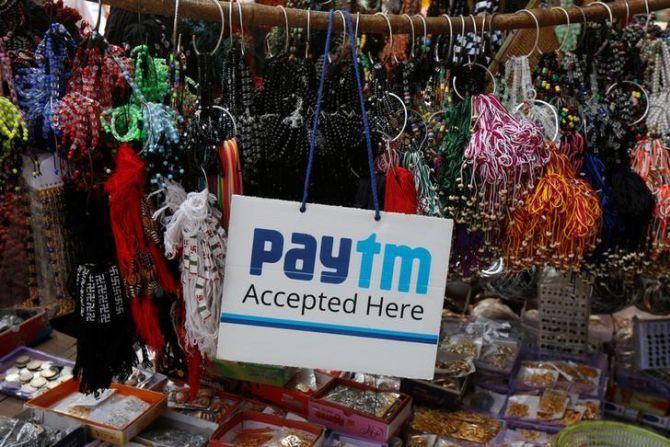
Sharp downgrades may keep Paytm stock under pressure
In a presentation, One97 Communications (Paytm) announced that it is going to cut back on loan distribution for small-ticket ‘postpaid’ loans as a prudential measure.
This decision follows the Reserve Bank of India’s (RBI’s) recent tightening of regulations, raising risk weights on unsecured loans.
This particular segment accounts for about 55 per cent of quarterly disbursements and was growing at 120 per cent year-on-year in the second quarter (Q2) of 2023-24 (FY24).
Paytm will now focus on big-ticket personal loans.
In the presentation, the company highlighted that around 70 per cent of personal loans are below Rs 50,000. It intends to reduce this segment by around 40-50 per cent through a review and reduction in credit limits, non-renewal of existing credit lines for certain customers, and reduction in new customer onboarding.
The management’s guidance is that this should bring down ‘postpaid’ disbursement run rates by 40-50 per cent in the near term.
The company intends to offset this impact partly by increasing its focus on higher-ticket personal loans (Rs 3-7 lakh) and merchant loans.
Demand in these loan segments remains strong, while risk is easier to control.
For higher-ticket loans, it will continue to receive distribution commission but will not get any collection commission.
The buy now, pay later (BNPL) business may moderate sharply with disbursements down by 15-18 per cent.
The company indicated that the monthly postpaid loan sourcing run rate may moderate by 50 per cent from Rs 3,000 crore to Rs 1,500 crore.
As a result, the total disbursement run rate is expected to decline to around Rs 4,500 crore per month from the current Rs 6,000 crore per month.
Paytm has on average added 350,000 to 400,000 customers every quarter, but new additions are now expected to reduce by 50 per cent.
Paytm believes that its sourcing funnel will be largely unaffected, as creditworthy customers will be able to use postpaid services.
Take rates are expected to be only marginally affected as BNPL as a product has lower take rates, and a pick-up in higher-ticket personal loans should
offset the impact.
It’s unclear about the longevity of these risk-mitigation measures and the future outlook in low-ticket unsecured loans.
The company’s relationships with existing lending partners remain intact, and it aims to push growth with three new relationships by the first quarter (Q1) of 2024-25 (FY25).
It has seven non-banking financial company (NBFC) partners for loan distribution, and it is in the process of integrating one large bank and two large NBFCs by Q1FY25.
Paytm hopes robust growth in merchant loans and healthy growth in big-ticket personal loans will offset the impact soon.
Postpaid BNPL is the lowest take-rate business.
The company’s expected credit loss on BNPL Postpaid had reduced to 0.65 per cent (Q2FY24) from 1.1 per cent (third quarter of 2022-23), but it can see stress signs, and the RBI notification is a disincentive.
The Paytm stock price had bounced by 60 per cent in the last 12 months on the strong uptick in loan distribution business revenues and operational efficiencies.
This announcement has led to a significant selloff, with the stock down from Rs 840 to Rs 660 in just two sessions.
Analysts are downgrading operating profit expectations by 10-20 per cent for FY25, but most have valuation targets that are well above the corrected price.
Disclaimer: This article is meant for information purposes only. This article and information do not constitute a distribution, an endorsement, an investment advice, an offer to buy or sell or the solicitation of an offer to buy or sell any securities/schemes or any other financial products/investment products mentioned in this article to influence the opinion or behaviour of the investors/recipients.
Any use of the information/any investment and investment related decisions of the investors/recipients are at their sole discretion and risk. Any advice herein is made on a general basis and does not take into account the specific investment objectives of the specific person or group of persons. Opinions expressed herein are subject to change without notice.
Source: Read Full Article
